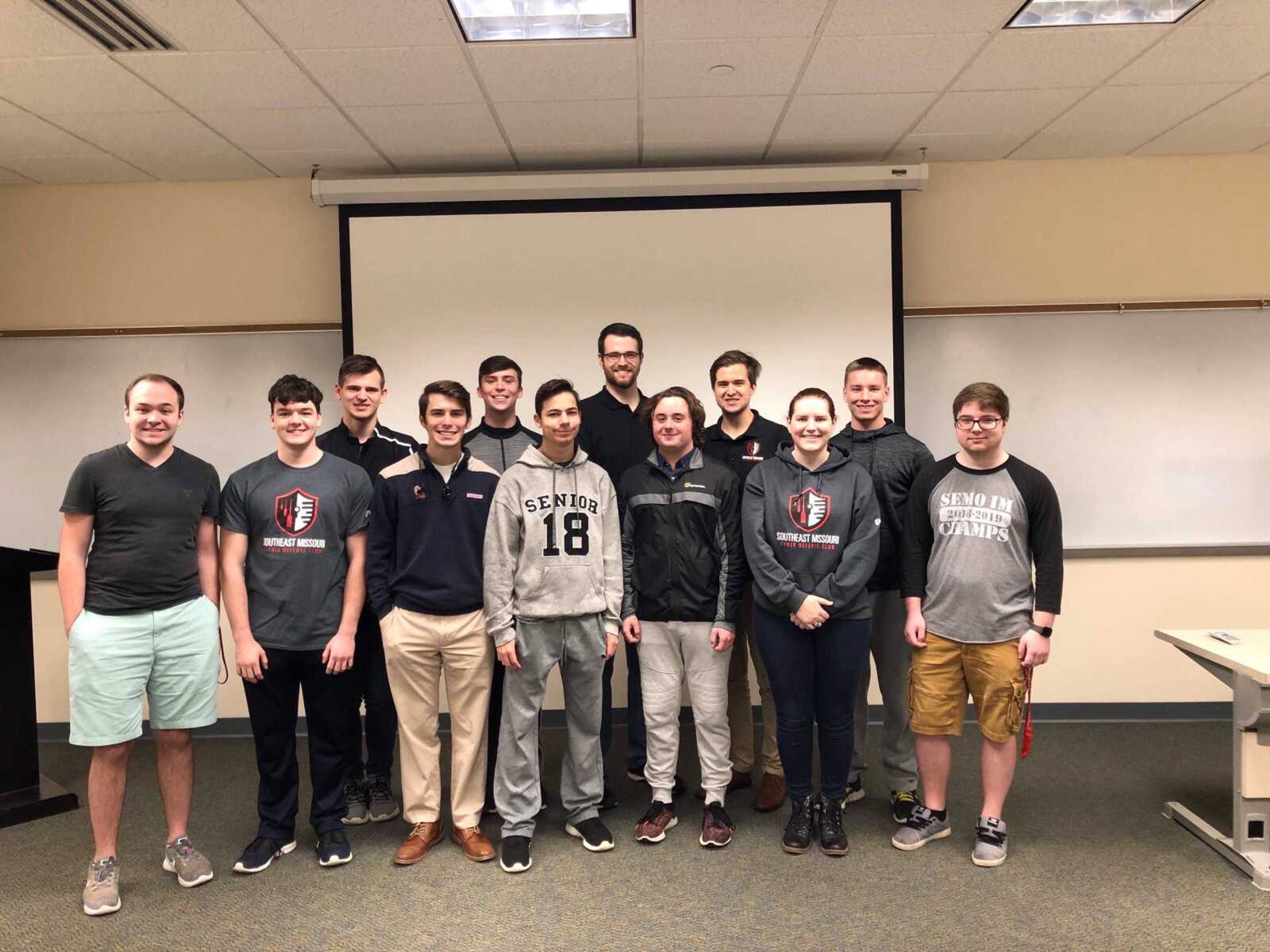Undefeated at Collegiate Competition; Cyber Defense Club wins first place
The Cyber Defense Club at Southeast went undefeated at the Missouri Collegiate Cyber Defense Competition (CCDC) on Feb. 2 and is now moving on to regionals. Senior Michael Maune, a team member, said the competition not only serves as a learning opportunity but is an event for the students to showcase their talents to paramount cybersecurity recruiters like Raytheon, Airforce, Polito and more...
The Cyber Defense Club at Southeast went undefeated at the Missouri Collegiate Cyber Defense Competition (CCDC) on Feb. 2 and is now moving on to regionals.
Senior Michael Maune, a team member, said the competition not only serves as a learning opportunity but is an event for the students to showcase their talents to paramount cybersecurity recruiters like Raytheon, Airforce, Polito and more.
Club vice president, a senior, Mackenzie Bonneville explained this competition as a fake run through of what it would be like if a company was compromised by technical issues.
She said teams walk into the attacked environment and try to fix what is broken, protect against future hacks and maintaining day-to-day technical operations.
“During the competition, there is always a time when we are all stressed about the service being down for a significant amount of time, and this is what we are scored upon,” she said. “Then there is that one person who fixes it- the red light turns green — that is the best feeling in the world.”
They compete with schools from Missouri and throughout the Midwest; final scoring is only based on the other schools in Missouri.
Maune said their biggest competitor is Missouri S&T from Rolla, Missouri, which finished second.
There are eight people on the team and several different roles.
Bonneville said she has the position of taking care of the business side of things — and the person who takes it from administration to tech.
From there, the information is sent to the technical team and distributed to the rest of the branches: Webmail service, active directory domain on a DNS server, a backup DNS server, a server hosting Splunk and a server hosting Phantom.
This team consists of Bonneville and Maune, Andrew Banning, Ben Shell, Tim Vitale, Jack Gavin, Connor McGarr and Ethan Gyori; the alternatives are Max Foster, Cramer McGarr, Connor Bybee and Joseph Kossack.
The team is now preparing for the regionals March 15 and 16 at Moraine Valley Community College in Palos Hills Illinois.
“This is my third year being on the team and going to regionals,” Bonneville said. “It will be different this year because of our newer team.”
She said they have seven newer members mixing in with the older veterans, therefore they will not have the fast communication you get with other veterans.
Maune said the biggest obstacle when preparing for the competition is not knowing what scenario you are going to be assigned.
“Within the first 30 minutes of competition I discovered a lot of viruses hidden in my firewall,” he said. “I found them immediately and shortly realized that all my preparation had paid off and it was such a gratifying experience.”
The state competition is eight hours long, whereas regionals take place over two days.
“In order to prepare for regionals, we practice in a mock environment similar to the one at regionals; which is located in the cyber range in Dempster Hall,” Bonneville said.
This is the seventh year they have won state whereas in regionals they are usually placed in the top third, except for last year when they had placed second.
“We are going for first place at regionals this year,” Maune said.







